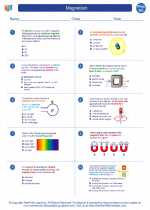Blood
Blood is a specialized bodily fluid that circulates in the cardiovascular system, providing essential nutrients and oxygen to cells while removing waste products. It is composed of cells suspended in a liquid called plasma, and plays a crucial role in maintaining homeostasis within the body.
Composition of Blood
Human blood is composed of several components, including:
- Red Blood Cells (Erythrocytes): These cells contain hemoglobin, a protein that binds to oxygen and transports it to tissues throughout the body.
- White Blood Cells (Leukocytes): These cells are part of the immune system and help defend the body against infections and foreign invaders.
- Platelets: These cell fragments are essential for blood clotting and wound healing.
- Plasma: This is the liquid component of blood, composed mainly of water, but also containing proteins, electrolytes, hormones, and waste products.
Functions of Blood
Blood serves several vital functions in the body, including:
- Transportation: Blood transports oxygen, nutrients, hormones, and waste products to and from cells throughout the body.
- Regulation: It helps regulate body temperature, pH balance, and water content.
- Protection: Blood contains white blood cells and antibodies that defend the body against infections, as well as platelets that aid in blood clotting.
Blood Typing
Blood can be classified into different blood types based on the presence or absence of certain antigens on the surface of red blood cells. The ABO blood group system and the Rh factor are the most important blood typing systems for blood transfusions and organ transplants.
Disorders and Diseases
Several disorders and diseases are associated with the blood, including anemia, leukemia, hemophilia, and blood clotting disorders. Understanding the causes and treatments of these conditions is crucial for healthcare professionals.
Study Guide
To effectively study the topic of blood, consider the following key points:
- Understand the composition of blood, including the functions of red blood cells, white blood cells, platelets, and plasma.
- Learn about the functions of blood, including transportation, regulation, and protection.
- Explore the principles of blood typing and the importance of compatibility in blood transfusions.
- Review common blood disorders and diseases, and understand their causes, symptoms, and treatment options.
- Use visual aids such as diagrams and flowcharts to understand the circulation of blood through the body.
By mastering these concepts, students can gain a comprehensive understanding of the role of blood in the human body and its significance in healthcare and medical interventions.
.


